
Papaya Description, Cultivation, Uses, & Facts Britannica
September 16, 2022 // Published by anna Papaya ( Carica papaya) is a herbaceous perennial plant of the Sericeae family grown for its edible fruit. They are tree-like, usually unbranched, with hollow stems and petioles. The leaves are palmately lobed, arranged in spirals, and clustered at the tip of the trunk.

Male or female papaya tree? Papaya tree, Parts of a plant, All plants
1 Male Papaya Tree 2 Female Papaya Tree 3 Perfect Papaya Tree (Hermaphrodite) 4 The influence of climate on flower shape Male Papaya Tree Male trees are easily recognized because they have many hanging branch panicles with dense male flowers. This male flower is a slender tube of about 2.5 cm in length.

is my papaya tree hermaphrodite (bisexual) ? in the Tropicals forum
3.6K Share 375K views 7 years ago It isn't difficult to tell the difference between a male and a female papaya tree. Today you'll see the difference in the blooms and it will become obvious.
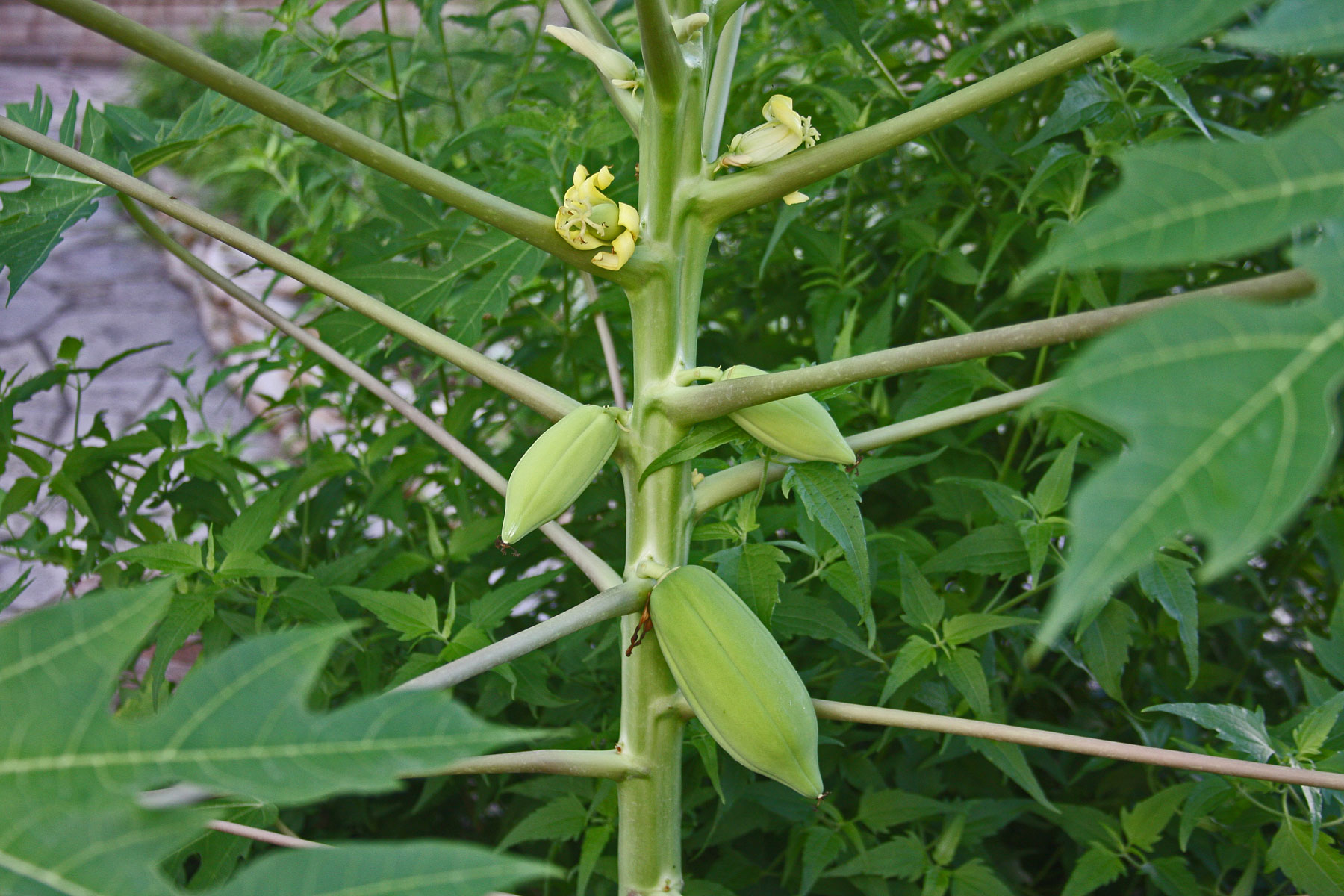
PLANTanswers Plant Answers > Papaya Growing in San Antonio by Dr. Ying Doon Moy
2 Answers Sorted by: 9 The hermaphrodite papaya is recognized by its flowers. They have both male and female characteristics, which is why they're able to self-pollinate. Unfortunately, that means you really can't tell the gender of the tree until between 3 to 6 months after transplanting, when it begins flowering.

Connecting with Nature 2014
Looking for Female Papaya Tree? We have almost everything on eBay. But did you check eBay? Check Out Female Papaya Tree on eBay.
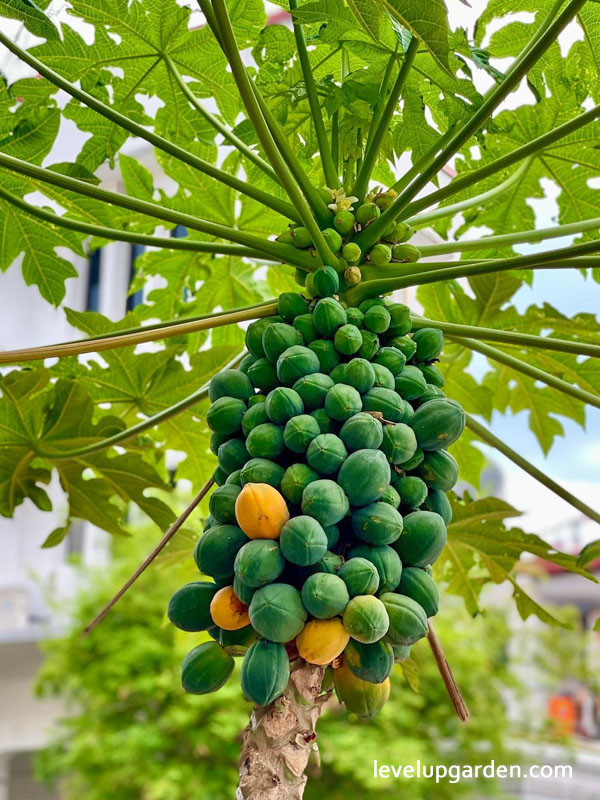
Papaya Tree ubicaciondepersonas.cdmx.gob.mx
The Female Papaya Trees: The female papaya trees produce female papaya flowers. The flowers have an ovary and are borne on the stem of the plant, where the leaf is attached. The flowers are bulbous at the base and pointed at the tip. The ovary of the flower receives pollen from the male plant and gets fertilized and produces fruit.
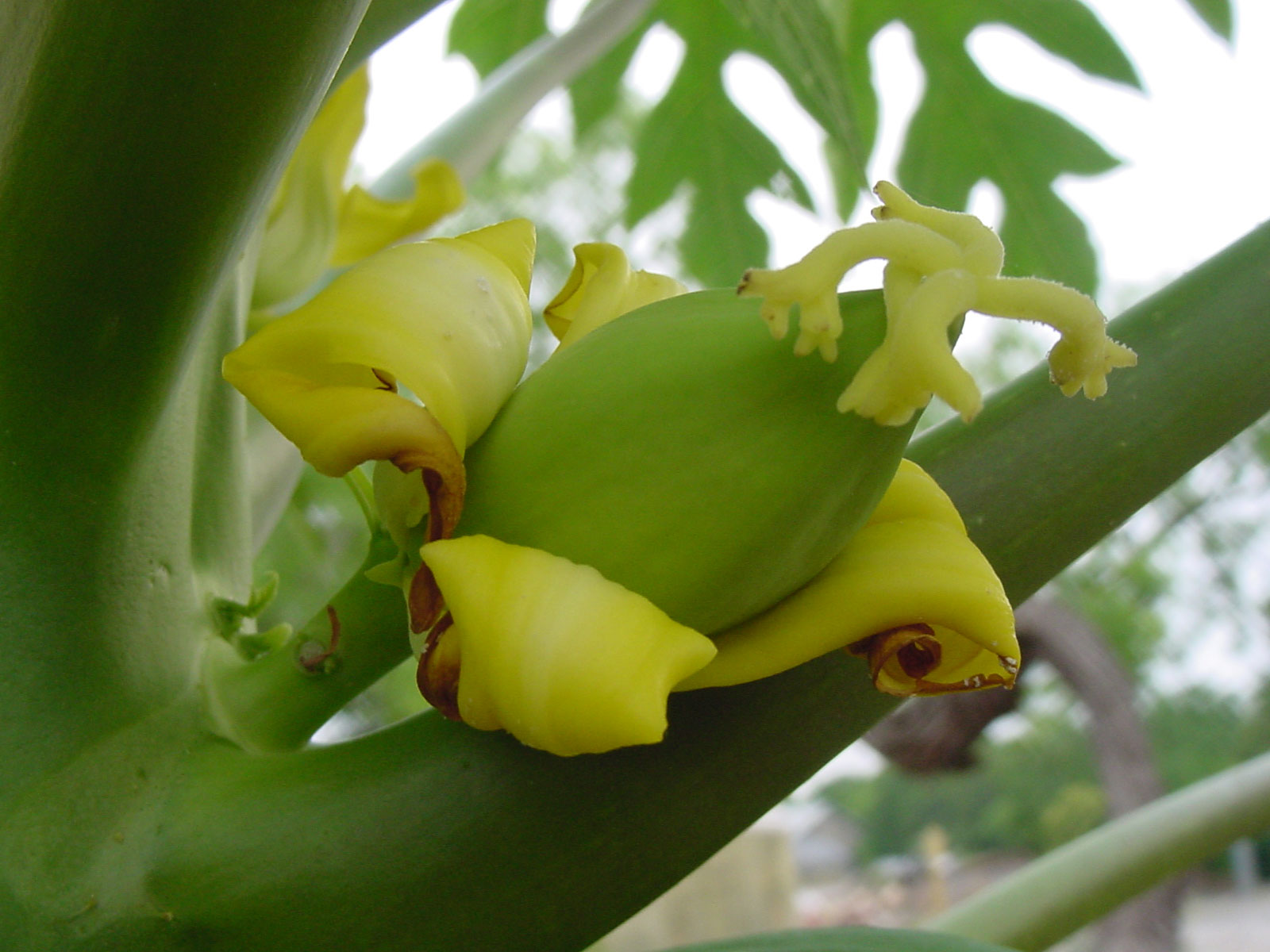
PLANTanswers Plant Answers > Papaya Growing in San Antonio by Dr. Ying Doon Moy
Flowers on female papaya trees grow in small clusters or as solitary blooms that are larger than male flowers, but on shorter stalks. They do not possess stamens and can produce fruit if pollinated. The green-skinned melon-type fruit is typically 6 to 8 inches long with yellow or orange flesh and black seeds.

Forum Papaya Dropping Flowers
Source: Bernard DUPONT All About The Papaya Tree Fruit slowly ripening on the branch. Source: navart Carica papaya, the papaya tree is also known as paw paw, Okwuru-ezi, Okwuru- bekee, Mgbimgbi among Igbo peoples, and Ibepe among Yoruba peoples. Papaya cultivation began in Central America, Southern Mexico, and South America.
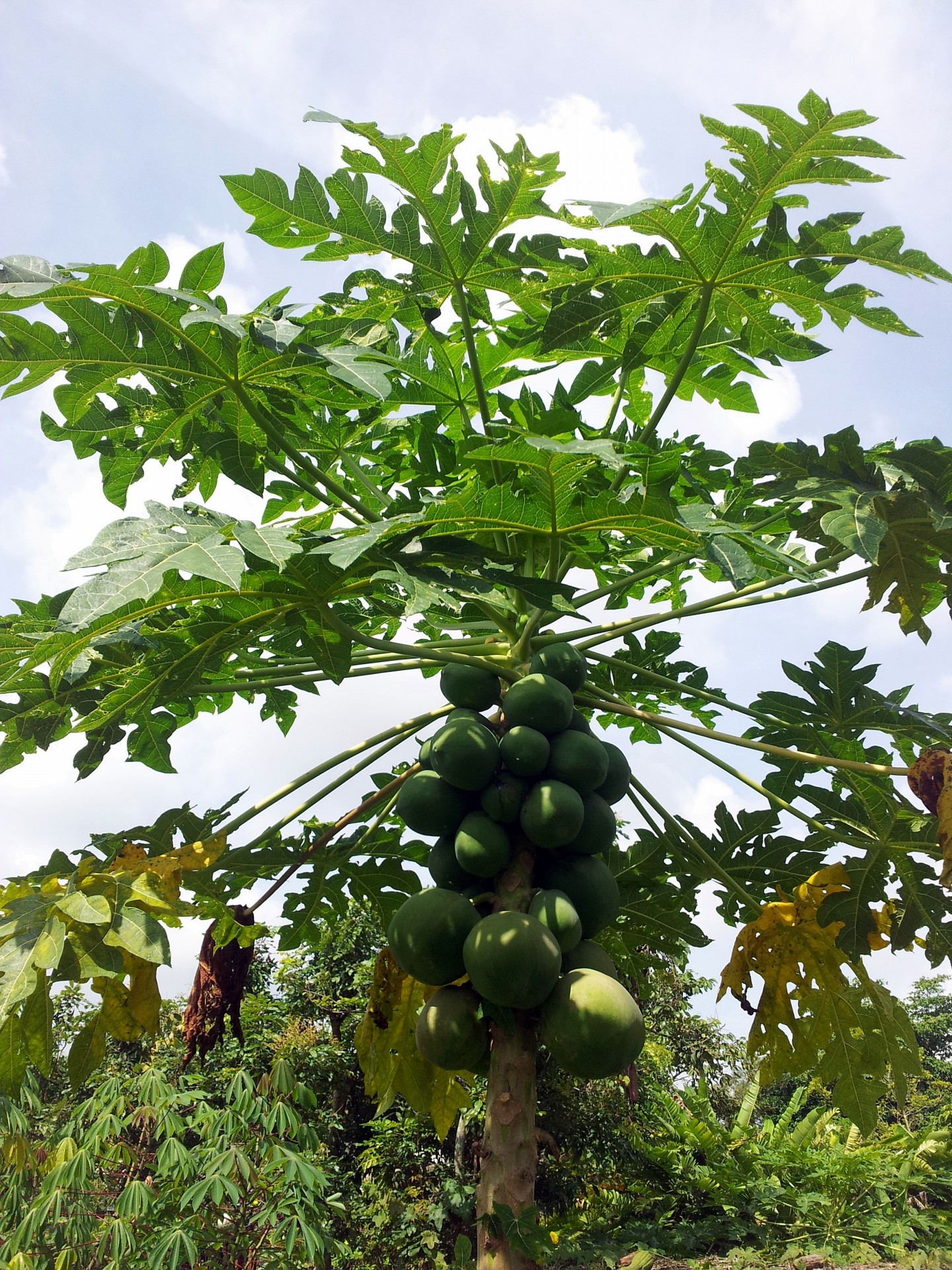
Female Papaya Tree With Fruits Free Stock Photo Public Domain Pictures
last updated January 09, 2023 Growing papaya trees is a great way to enjoy these exotic fruits every year. Papaya trees grow best in USDA growing zones 9 and 10. If you are lucky enough to live in these regions, learning how to grow a papaya tree should likely come naturally.

PAPAYA
Male papaya trees typically have a trunk that is smooth and thin, while female papaya trees tend to have trunks that are thicker and more textured. To be sure that you're looking at a male papaya tree, check for the presence of flowers. Male papaya trees produce flowers, which are usually white or yellow in color.

How to Tell The Difference Between Male and Female Papaya Trees YouTube
Female papaya trees grow tiny clusters of fat-petaled papaya flowers or solitary blooms on short stalks. They will produce large fruits if they are pollinated. Hermaphrodite Papaya Trees The flowers of the papaya are hermaphroditic if they contain both the male and female parts to pollinate, the stamen and the pistil.

Papaya 4 FEMALE FLOWER All Papaya trees sold in the USA … Flickr
Description Tree and Tree Types Giant arborescent plant to 33 ft (10 m) tall; generally short-lived although may live up to 20 years; initially single trunked but may form secondary shoots with age. Papaya plants have no secondary growth (i.e., wood). Leaves Leaves are palmately-lobed and short-lived, 6-8 months.

Identifying Male and Female Papaya Trees The Key to Papaya Fruiting Papaya plant, Papaya tree
Fruits from female trees are larger, rounder, and thinner-walled than fruits from hermaphroditic trees. Fruits from bisexual plants have smaller seed cavities. Male plants with bisexual flowers may produce a few pear-shaped, poor-quality fruits. Papaya yield. A papaya tree can produce as many as 100 fruits in a growing season.

female papaya tree this tree bears only female flowers that show Papaya tree, Papaya, Image
Female papaya trees require male trees for pollination. In orchards and papaya plantations, generally, 1 male tree per 10 female trees is grown. Hermaphrodite (self-pollinating) papaya trees are self-pollinating and don't require male trees for pollination. Many commercial growers plant them!
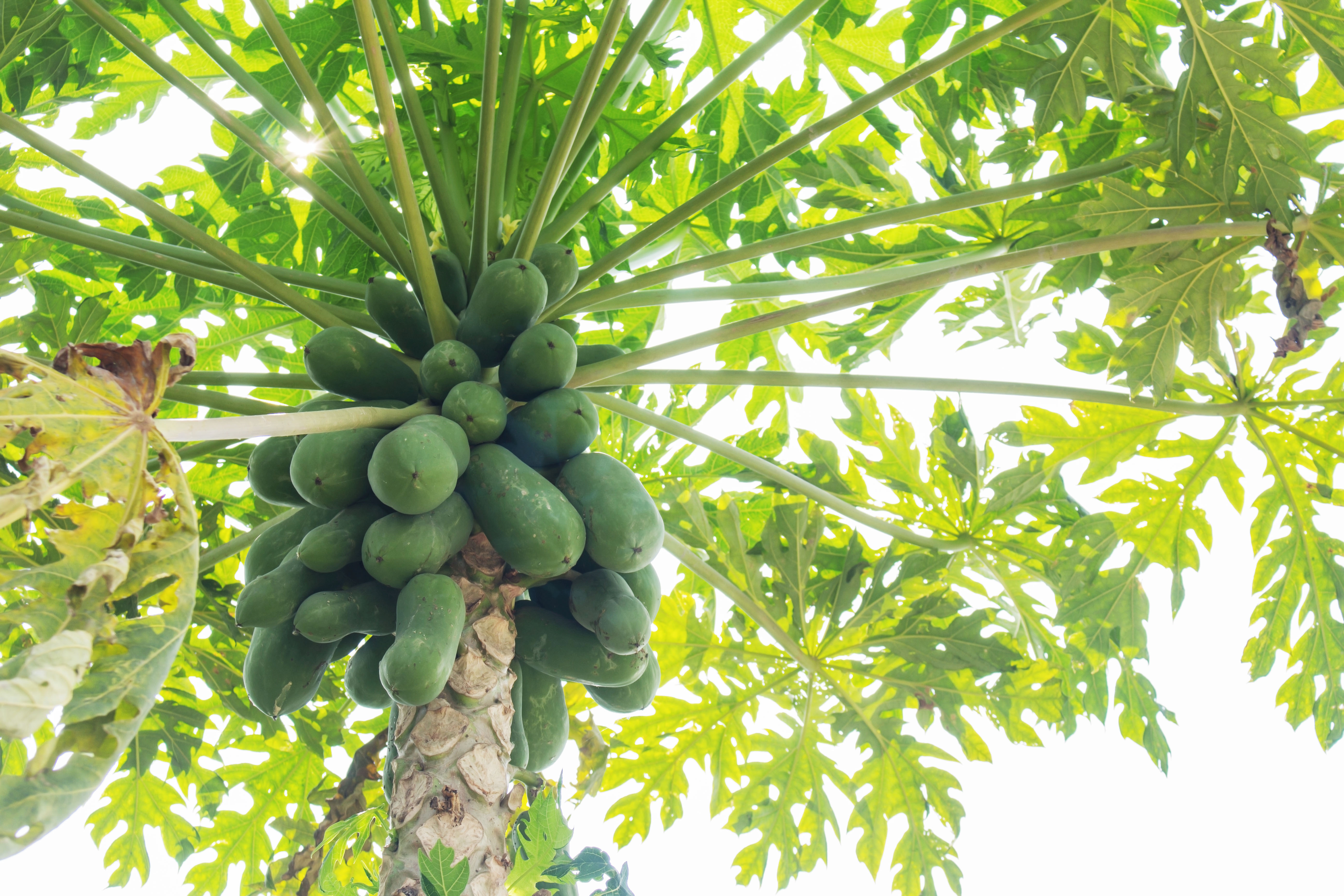
Fruit Trees Home Gardening Apple, Cherry, Pear, Plum Papaya Fruit Tree
Female papaya trees are the ones that bear fruit, and having a healthy population of these trees can ensure a steady supply of papayas. Additionally, female papaya trees are more valuable than male papaya trees, making them more profitable for farmers and gardeners. Identifying a Male Papaya Tree

Female papaya tree Male papaya trees don't have fruit. The… Flickr
Once a female tree starts producing fruits, you can likely expect regular fruit for at least 3 to 5 years, after this the fruits will become poorer and then stop altogether, although the tree itself may still be alive. Best Growing Months for Papaya Fruits